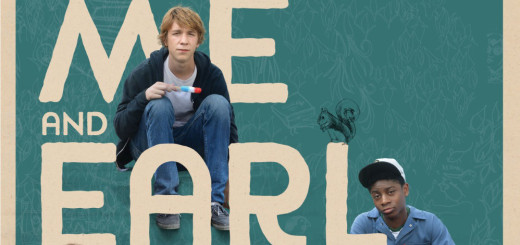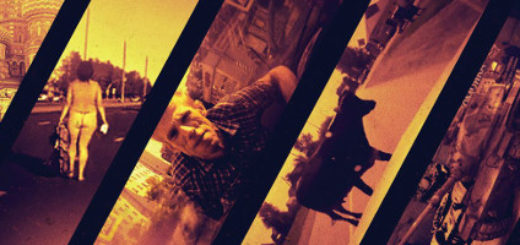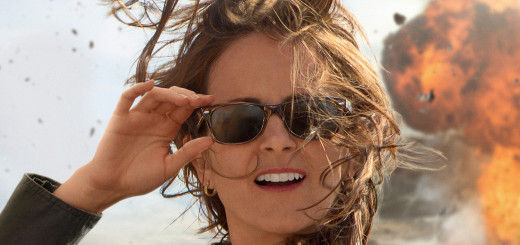UNDER THE SHADOW Review
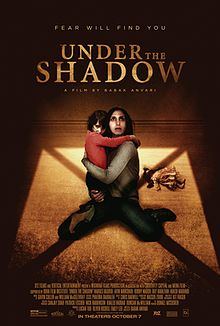
Director: Babak Anvari
Genre: Horror
Year: 2016
Expectations work on so many levels at the cinema; on the screen, with what characters expect to happen to them against what actually does; in the theater, as audiences expect certain twists and turns that the film either upholds or subverts; even in the days and hours preceding the viewing of a film — what do we expect the film to be? Aesthetically? Narratively? Tonally? And, perhaps most importantly, do we expect to enjoy the film? To disregard the degree to which expectations play into anyone’s cinematic experience would be ignorant. This is doubly true of horror films, which primarily induce fear by playing with expectations and prolonging the scare. There’s a reason why the audience rarely gets to see a full view of the monster/killer/ghost until the third act — one’s own imagination will always be more terrifying than any costume or CGI render.
What then, was expected for a viewing of the 2016 Sundance darling psychological horror film UNDER THE SHADOW? The unavoidable Wikipedia logline gives plot/setting expectations: In 1980’s Tehran a mother protects her daughter from more than Iraqi missiles when a mysterious force begins haunting them by day and night. Given that premise, the expectation is that the story would not only be terrifying but enlightening on social and historical issues too. Additionally, I hoped that this film would be the latest in the the recent wave of excellent independent horror movies such as IT FOLLOWS, THE WITCH, GOODNIGHT MOMMY, and THE BABADOOK. Although it’s unfair to judge a film based on preconceived notions, it seems all acclaim given to UNDER THE SHADOW must be because of said expectations. On its own accord, the picture ultimately delivers on none of its promises.
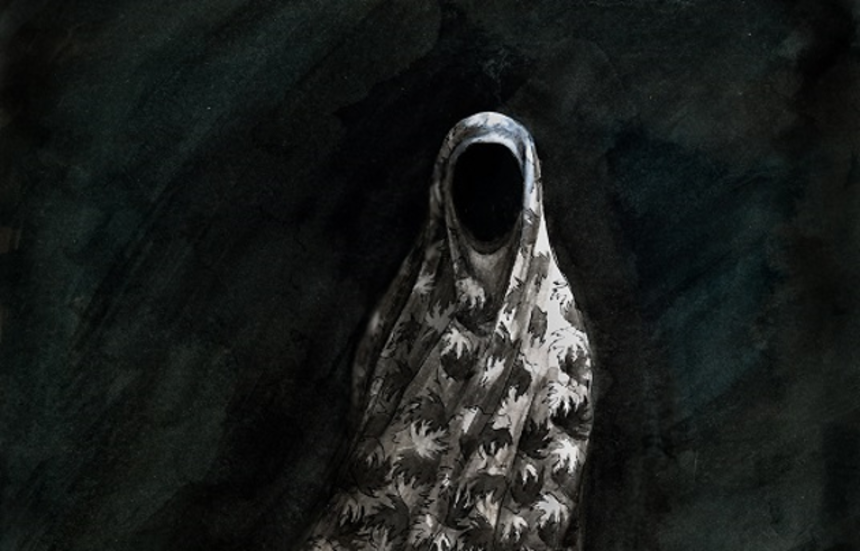
I too, dread laundry day
Director Babak Anvari aims to tell a feminist story in a setting that has more rampant sexism than a 0.80-1.00 wage gap. Shideh, a young mother and star of this film, is first seen getting rejected by a medical residency program, being told she will never be a practicing doctor — which she proclaims to be her life goal. Her unsympathetic husband (an ‘actual’ doctor) shrugs it off and commands her to find a new passion before he is drafted to the war ten minutes into the film, his character never to be seen again. Shideh then easily accepts domestication as her fate, left alone to care for her seven year old daughter, Dorsa. Shideh’s quick resignation to a ‘woman’s role’ could be the point, the inability to becoming a female doctor in 1980’s Iran highly realistic. But if this is the point of the story — it should have been the point of the story, not something confined to the opening scenes.
Instead, there’s a mishmash of ideas in this film as Anvari attempts to cover a lot of thematic ground in an 84 minute movie. Sexism in Iran gets attention for approximately the first act, but quickly falls to the wayside. The difficulty of caring for and raising a toddler is sprinkled throughout but never deeply felt, as Dorsa is a relatively well-behaved (but poorly acted) child. The pervasive anxiety that exists from the possibility of being bombed at any time is eventually given the most thematic importance considering the film’s final shot. Unfortunately, even this throughline is not set up early enough nor consistently centralized to the narrative to have much weight by the time it’s made the central issue. UNDER THE SHADOW would have greatly benefitted from having the same thematic focus that IT FOLLOWS (the perils of loose-and-fast teenage sexuality) or THE BABADOOK (the manifestation of grief making normal life impossible) executed so well; instead coming off as a piece that wants to be just like those other films without growing organically from a simple seed of a thesis statement.
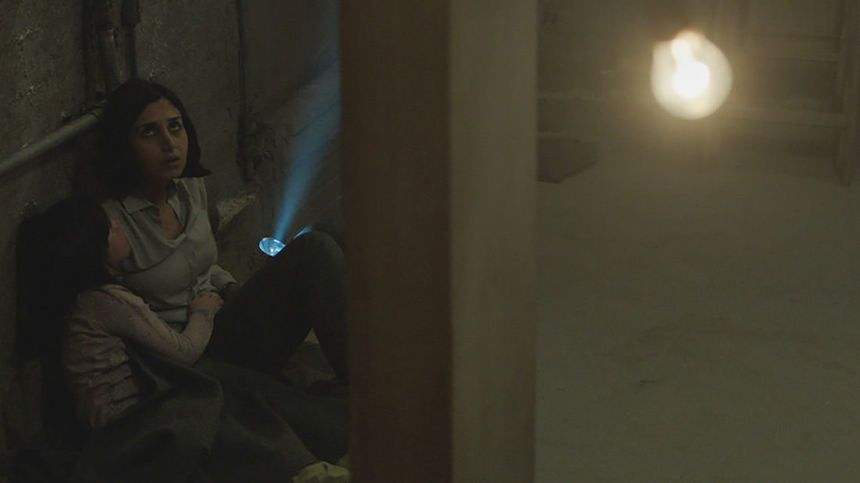
“Dear god… I think I left the bathroom light on.”
Technically, Anvari’s film also pales in comparison to the previous Sundance horror flicks (THE WITCH premiered there in 2015 and THE BABADOOK in 2014). It’s also worth noting that beat-for-beat, UNDER THE SHADOW has remarkable similarities to the latter film directed by Jennifer Kent, but given that there’s only two calendar years between the premiere of both films, I’ll let it slide as a mighty suspicious coincidence. Robert Egger’s THE WITCH had an impressive dedication to accurately portray Puritan life and a uniquely theatrical style of staging the characters and camera. THE BABADOOK utilized practical effects to achieve a storybook look in addition to turning a clearly low-budget sound stage into a sufficiently creepy victorian home. UNDER THE SHADOW aims for a similar boxed-in feel with Shideh’s and Dorsa’s apartment being the primary location. That box is felt though, the look of each room seeming like student film set dressing as opposed to where these characters live and breathe. The flat lighting does nothing to alleviate the low-budget look. The climax of the film (yes, it took place in a basement) featured CGI so cheap and a figure so arbitrary, one wonders if they rewrote something in that was easier to animate.
Where UNDER THE SHADOW is the most lacking though, is in Babak Anvari’s direction. Despite the sporadic nature of the script and the shortcomings of the technical work, the setting of the story and the acting chops of lead Narges Rashidi could have resulted in an engaging film. But Anvari’s sense of pace is off. He uses handheld tracking shots during moments that should have the option to breathe and, when he does choose to cut, doesn’t find effective camera angles for emotional storytelling and is forced to hang on inserts and uninteresting frames for seconds too long. The dramatic scenes are one-note — the characters are never allowed to vent their frustration in dynamic ways, opting to play everything somberly and leaving no room for growth. Most egregious of all, this horror movie simply didn’t strike me as very scary. It’s not particularly brooding or creepy, has only two-three working jump scares, and contains no final act reveal that makes you reevaluate everything you’ve just witnessed (apologies if that counts as a spoiler). This can be attributed to a mismatch of stakes.
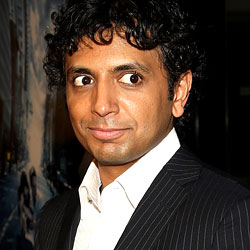
“NO TWIST?!”
The fear of a deadly Iraqi missile strike mounting, the apartment complex in which Shideh and Dorsa live gets progressively more empty — their neighbors choosing to flee to rural lands. Shideh is determined to stay until the pair locate her daughter’s doll, an object they both believe has been given spiritual significance and that, without it, they will be haunted by the mysterious Djinn indefinitely. Whether or not this is true is inconsequential, the concept of spending excess time in a warzone to scour an apartment for a doll is in itself ridiculous. The moment at which Shideh becomes convinced it’s not is glazed over by Anvari. In order to motivate this ludicrous character choice, it must be blatantly clear that Shideh and Dorsa would rather die in vain searching for the doll than be plagued by the nightmare(ish) visions of the Djinn for the rest of their lives. Anvari was unable to get a truly tormented performance from either actress in order to defend this key story element.
Given the limited bag of tricks available to genre filmmakers and an oversaturated market of horror movies, it’s a tall order to expect a movie to be bone-chillingly terrifying. However, if a filmmaker is going to forego suspense in favor of using the genre for more ambitious thematic goals, then it’s fair to expect those messages to be poignant and powerful. In the case of UNDER THE SHADOW, Babak Anvari’s reach exceeded his grasp as he attempted to convey an array of commentary and still tried to frighten his audience — causing a flatline on all fronts. Anvari may be aware that audiences carry expectations with them to the theater, but has yet to learn that it’s possible to expect too much out of them in return.
Verdict: Do Not Recommend

